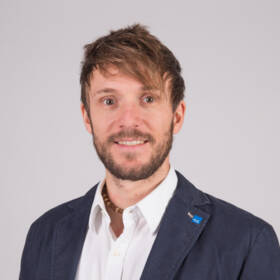Validation of a Cost-Effective Smartphone-Based 3D Gait and Motion Analysis System for Capturing Movement Kinematics in Children with Cerebral Palsy.
Background
Cerebral palsy (CP) is a motor disorder caused by early brain damage. It primarily affects motor control, causing significant deviations from normal gait patterns in individuals with CP. Common symptoms include increased muscle tone (spasticity), reduced baseline muscle tension (hypotonia), impaired precise movement (ataxia), and fluctuating muscle tone with uncontrollable arm movements (athetosis). The treatment of CP involves a multifaceted approach, combining conservative and surgical measures such as physiotherapy, occupational therapy, speech therapy, medications, and orthopedic interventions.
Clinical 3D gait and motion analysis are essential tools for making medical decisions and ensuring the best possible care for CP patients. They assist in the following areas:
They assist in the following aspects:
- Objective Measurements: 3D gait analysis objectively measures joint movement patterns, gait velocity, step length, step width, and other parameters. These data are crucial for diagnosis and treatment planning.
- Detection of Deviations: By analysing gait movements, deviations from a normal gait patterns can be identified. This helps physicians and therapists recognize specific problem areas, such as uneven step lengths or uncoordinated movements.
- Therapy Planning: Based on 3D gait analysis results, an individualized therapy plan can be created. This may involve selecting appropriate exercises, orthopedic aids, or surgical interventions to improve gait function.
- Progress Monitoring: During treatment, 3D gait analysis enables regular monitoring of progress. Changes in gait patterns can be detected early, allowing for adjustments to the therapy.
Overall, 3D gait analysis contributes to enhancing the quality of life for individuals with CP by providing a solid foundation for personalized treatment.
Challenge
A significant drawback of instrumented 3D gait analysis is its limited availability. Currently, it is accessible only to a small number of institutions due to its reliance on expensive and complex motion-capture hardware. These analyses are typically performed in specialized laboratories by trained personnel. To ensure that more CP patients benefit from these technologies during their medical treatment, cost-effective and user-friendly alternatives are required.
Project Content and Goals
Recent advancements in deep learning and computer vision have led to technologies that enable 3D motion analysis from simple video recordings, such as those captured by smartphones. These markerless motion capture technologies show great promise for cost-effective and lab-independent gait analyses. However, their accuracy and reliability in CP patients require further investigation. This project aims to fill this gap by conducting a comprehensive study that validates the effectiveness and reliability of a cost-effective markerless motion analysis system for gait assessment.
We will focus specifically on Stanford's recently developed OpenCap system (www.opencap.ai). OpenCap combines straightforward smartphone technology with cloud computing to provide 3D motion analysis without the need for costly hardware. The solution is freely available and free of charge. In addition, the data collected in this project will be used to train OpenCap's underlying pose estimation algorithms, improving their accuracy in recognizing movements unique to CP patients. To determine whether the optimized pose estimation algorithms produce better results, the analyses will be repeated with these models.
Innovation
Progress in capturing body movements through simple camera systems is the result of years of collaboration among experts in computer vision, musculoskeletal simulation, and machine learning. These innovations have enabled the development of motion capture systems that do not rely on costly hardware and are easy to use. In this project, we embark on such a path, advancing the development of user-friendly motion capture systems to contribute to improved care for patients with CP.
You want to know more. Feel free to ask.
Senior Researcher Institute of Health Sciences
Department of Health Sciences
- Orthopädisches Spital Speising


